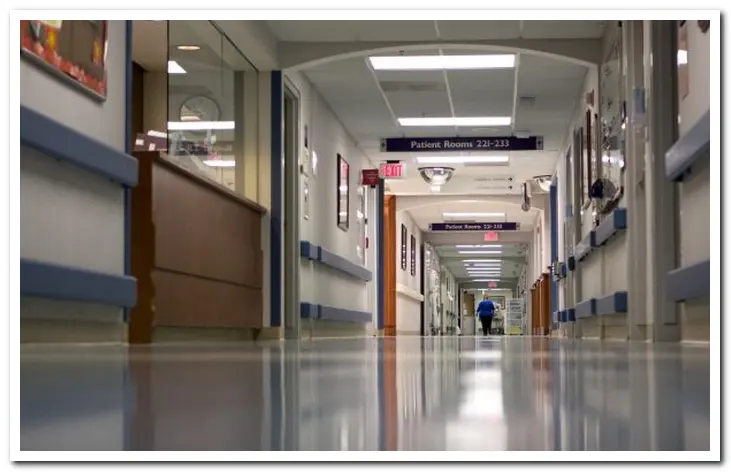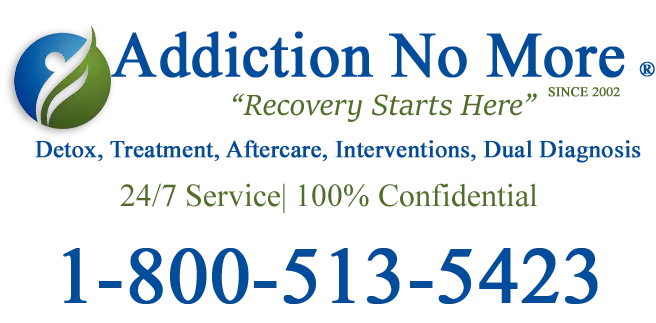Inpatient Drug and Alcohol Treatment Programs
Finding the best inpatient drug and alcohol treatment programs in your area can depend on what you want to get out of your recovery. There are many different variables which are unique for each individual. Inpatient drug rehabs can offer treatment for everyone, but there are specific needs that may be addressed better at a private inpatient treatment program. These types of individualized drug and alcohol rehab programs create a specialized treatment plan for each patient, specific to their addiction and history. There is no “one size fits all” treatment for addiction to drugs and alcohol. Residential drug rehab should be specialized to ensure the best possible outcome for the individual seeking treatment for any addiction. Types of treatment programs include
Holistic,
Christian, or faith-based,
Dual Diagnosis, and
Secular Programs.
It is sometimes beneficial for the client to go to treatment further away from home. Getting away from temptations and friends who may still be using is often better for many people. Clients who go to rehab in another state also have a harder time leaving treatment early as well. Depending on the situation, our counselors may suggest looking for substance abuse programs that are a plane flight away. Inpatient drug rehabs and long-term treatment programs will help anyone who wants to get help for their addiction to drugs or alcohol. Treatment services and pre-qualification can start now with a free phone consultation and evaluation. When looking for an inpatient drug rehab, it is always better to know what your options are so you can make an informed decision as to what type of treatment center is best for you or someone you love.
Please contact us by phone for immediate assistance. This is a necessary step in beginning the recovery process for yourself or a loved one. Our addiction treatment specialists and staff have over 25 years of experience in helping people find effective and affordable treatment for all addictions. What you tell us is completely confidential. We are HIPAA compliant. We are here to answer your questions and to get you (or a loved one) into treatment today. For immediate intake, call us now.
What you will learn:
Is inpatient a better choice than outpatient?
Is there a difference between residential and inpatient treatment programs?
How To Get a Loved One Help
How much do Inpatient Programs cost?
Insurance
The 4 Phases of Treatment
How We Can Help

Is inpatient a better choice than outpatient?
The first step in looking for a treatment program for addictions to drugs or alcohol, is to decide if you should enter into a short-term drug rehab center, long-term inpatient drug or alcohol rehabilitation center, or outpatient therapy. While private programs are the most effective form of treatment for addiction,
Outpatient drug rehabilitation programs can offer a good alternative for light drug and alcohol users.
Inpatient drug rehab centers are usually connected to a hospital or clinic and provide detox and rehabilitative care. People with serious mental or medical concerns, as well as substance use disorders, are the most likely to use inpatient treatment. Inpatient drug rehab centers can open the door to long-lasting recovery. When you have decided to go to a residential treatment center, finding the program that fits your specific needs can help you on the path to recovery. Inpatient programs require patients to admit themselves into a controlled environment to address not only substance use disorders but also other behaviors including co-occurring mental health conditions.
Is there a difference between residential and inpatient treatment programs?
The difference between a residential drug rehab center and inpatient treatment is mainly the length of stay required by the drug rehab center. Inpatient drug rehabs are usually a short-term treatment program consisting of 28-30 day inpatient rehab stays. A residential rehabilitation center is an in-house treatment program that lasts longer than 30 days and up to a year in the program. The typical stay at a long-term residential treatment center is anywhere from 60 to 90 days.
Private residential 90-day long-term treatment programs have a higher rate of recovery, compared to inpatient 30-day treatment centers, and outpatient therapy. While short-term treatment and outpatient programs can help people overcome their addictions, the longer-term 90-day drug and alcohol rehabilitation centers will give the patient a more secure foundation to start the next chapter of their life without the need for self-medicating. When entering into a residential treatment program for addiction, the person being admitted becomes a resident of the program with a specific treatment plan laid out specifically for the patient. The individual will be assigned a room and live there for the duration of the treatment program. All meals and therapy will take place at the center, with activities either being at the center or in a controlled environment outside of the treatment facility. Each program will have specific treatment methods and activities depending on its program offerings.

How To Get a Loved One Help
Someone who is addicted to drugs or alcohol may not want to get help, or they may feel that they can quit on their own. Getting someone to realize that they need help overcoming their addiction can be a daunting task. It may not be successful and have opposite effects if the intervention is not done properly in a controlled setting. Intervention teams for drug addiction or alcohol abuse are the best chance you have to help the person realize how drugs or alcohol have been taking over their lives. Visit our Interventions Section
HERE to get started with professional help through a private family intervention.

How much do Inpatient Programs cost?
Exclusive and Private Residential drug or alcohol rehab centers can vary in length and price. The length of the program can have significant increases in
cost as opposed to short-term treatment centers. Prices can range from $4000 a month up to $80,000 a month for an ultra-private
luxury treatment program for addiction. Most private treatment centers have in place some form of payment plans and insurance co-pay loans through a third-party financing service. Most co-pays for drug rehab treatment will need to be paid upfront or have a payment plan in place to cover what the insurance company does not cover. Deductibles must be met before insurance will cover treatment for addiction to drugs or alcohol.
Insurance
Getting
insurance to pay for rehab depends on your
insurance plan and the carrier of your policy. Through the ACA, mental health has been added to most policies ensuring that coverage is there for both mental health and addiction. The main carriers of insurance in the United States will offer some coverage for inpatient drug and alcohol treatment. Locating a private treatment program that will accept your insurance can be difficult. Navigating the insurance prequalification process for drug and alcohol treatment is best done by a third party to ensure that you access all the benefits available to you through your insurance plan. Our call center works with insurance companies to ensure that their clients get the best possible care available to them. Give us a call and we will be able to take some of the pressures of seeking the right inpatient long or short-term inpatient treatment program for addiction. Give us a call now and we can help you find out exactly how much your insurance will pay or for financing questions.

The 4 Phases of Treatment
With the many different treatment models to choose from, individual experiences in treatment may vary in methods and modalities. The four basic phases of treatment though are almost the same with every drug or alcohol treatment center.
The First phase in starting recovery at residential drug rehab is the intake process: This usually consists of getting a drug use history and some background history of the individual. The intake and pre-intake process (usually done over the phone) will determine what level of care the individual would need. This is also to ensure the patient is medically cleared to enter into a treatment center for addiction or if the individual should start their program at an inpatient medical detoxification facility.
The 2nd phase of a drug rehabilitation program is inpatient medical detox: Detox is recommended for specific addictions like
opioids,
heroin, methadone,
benzodiazepines,
alcohol, psychiatric medications, and others. Most inpatient drug rehabs will require detox for at least a 48-hour period before entering into their program to ensure that you are physically able to go through their program without feeling withdrawal symptoms. For others, stays at a detox facility can be as short as three days and as long as it takes to make sure the patient is medically cleared to enter into a private residential drug rehabilitation center.
The Third Phase of all treatment programs is the actual rehabilitation and therapy process: Therapy and treatment processes usually consist of several different components including one-on-one therapy, group therapy, classes, and activities. The length of stay at an inpatient treatment facility can vary. 30-day drug rehab programs are the most common with programs ranging in length to 90 days in an inpatient drug rehab or more.
The fourth phase of inpatient treatment programs is focused on Aftercare: Recovery through setting up aftercare either at home or continuing your stay at a partial hospitalization program for a transitional period is important for lifelong success. Working on setting their patients up for ongoing recovery is a very important last step of the recovery process. Aftercare treatment programs will give continuing support once the patient is released and completed the treatment program. Online AA and NA meetings are now available and have elevated the aftercare treatment programs into the 21st century.

How We Can Help
Only about 10% of the people affected by the grips of addiction in our country are seeking treatment in an inpatient drug and alcohol treatment facility. In 2018, there were over 17.9 million people who felt they didn’t need treatment for their addictions. This is a contributing factor as to why so many people die or overdose from addictions in the country today. Inpatient drug rehab centers are available to those with little, to no money, as well as for those with private health insurance, Medicare, Medicaid, and state insurance plans. There is no good excuse not to get help today.
There is help available even if you have no means to pay for treatment.
Summary
Service Type
Inpatient Drug and Alcohol Treatment Programs
Area
Inpatient Treatment Centers Service, Inpatient Drug Rehab Programs
DescriptionInpatient drug rehab centers offer intensive substance abuse therapy and provide treatment for alcohol and drug addiction. Residential treatment centers for addiction allow a resident of the program to receive specific care for their addiction recovery.










